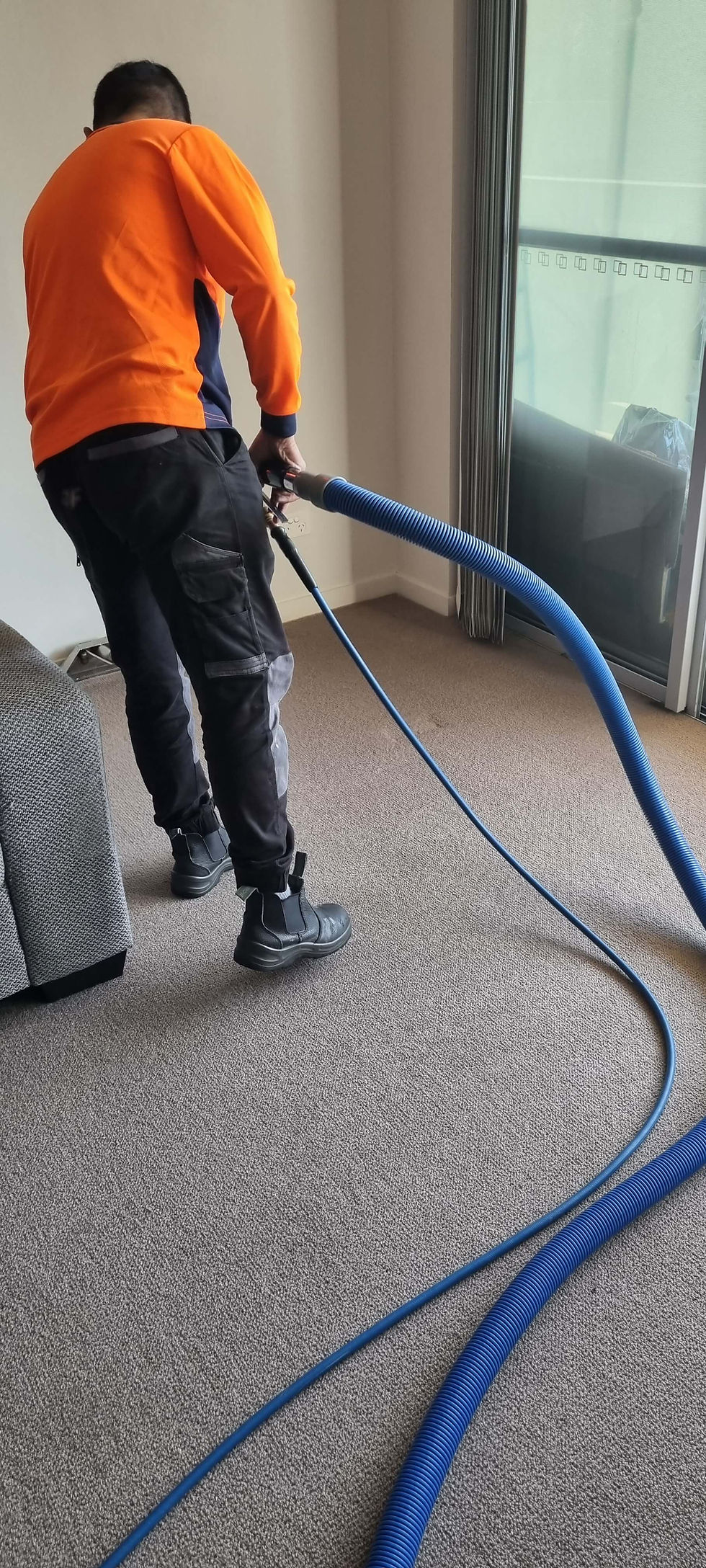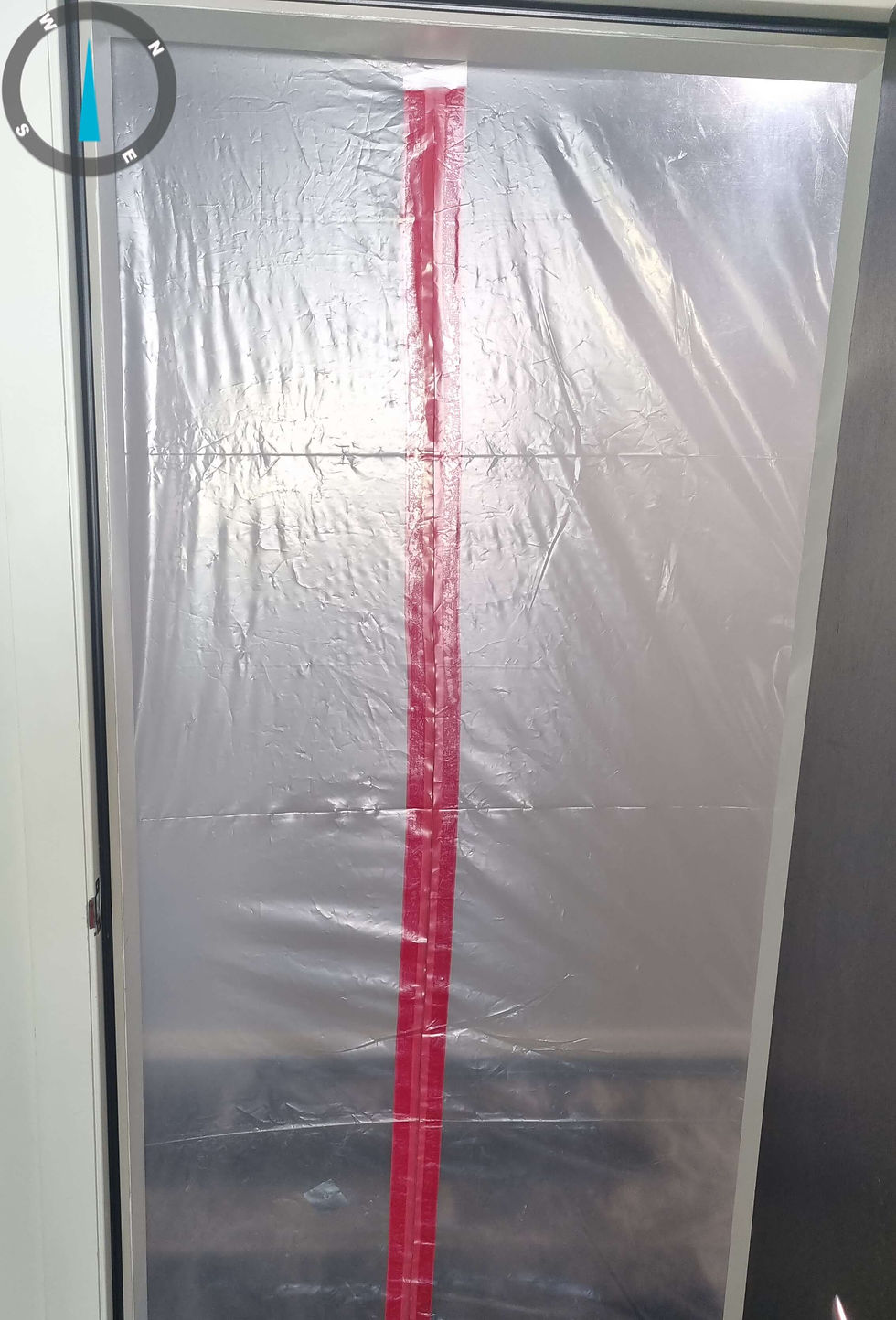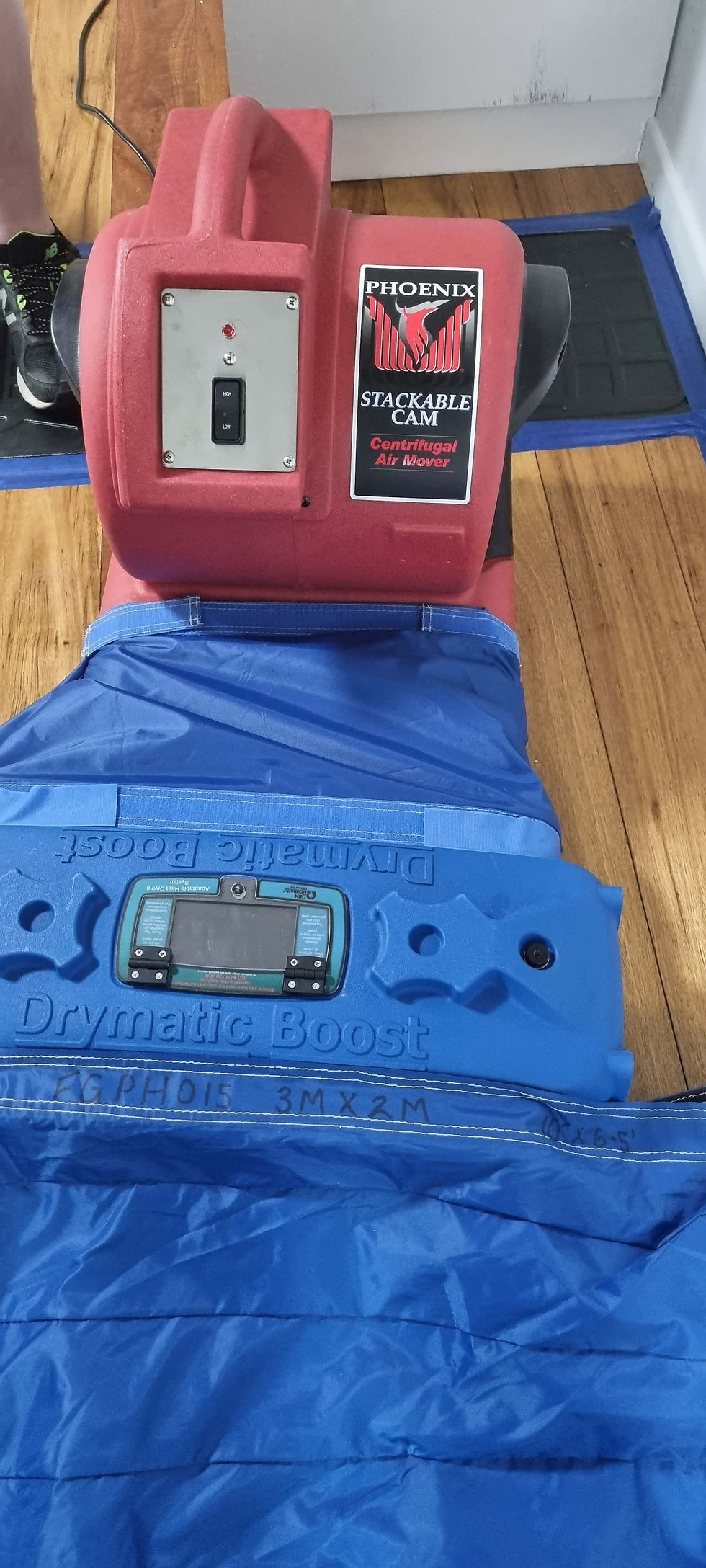🏠 Kitchen Water Overflow – Castle Hill, NSW | Case Study
- Michael Nguyen
- Jul 8, 2025
- 4 min read
Updated: Jul 18, 2025
How We Saved an Engineered Timber Floor After a Kitchen Flood
When a dishwasher malfunctioned in a Castle Hill home, it caused a slow but persistent overflow that soaked the kitchen's engineered timber flooring. The homeowner only noticed the issue after spotting cupping in the boards and a musty smell.
AAA Mould Removal was called in immediately. As an IICRC-certified structural drying specialist, we were able to assess, contain, and dry the floor without demolition — preserving the flooring and avoiding unnecessary insurance delays.
📍 Location: Castle Hill, NSW🏡 Property Type: Residential kitchen + hallway💧 Issue: Dishwasher overflow affecting carpets and timber flooring🧱 Flooring: Engineered timber and carpets on concrete slab📅 Drying Duration: 7 days💵 Project Cost: $2,900 (including inspection, equipment, reporting)
Kitchen Flood Diagnosis and Drying Plan
✅ 1. Visual and Moisture Inspection
Our technician assessed:
Surface water staining
Subfloor moisture via non-invasive meters
Moisture beneath cabinetry using a hygrometer probe
Findings:
Water had tracked under cabinetry and beneath adjoining hallway floorboards
Moisture was held in the lower ply layer of the timber
Humidity inside the kitchen was >70% RH — mould risk was increasing rapidly
✅ 2. Containment & Monitoring Setup
To prevent further damage and control humidity, we:
Installed plastic containment sheeting to isolate the kitchen zone
Set up HEPA air scrubbers to maintain indoor air quality
Applied Drymatic mats directly over the timber floor for controlled heat-based drying
Air movers and hehumidifers for rooms with carpets.
Connected 24/7 moisture telemetry sensors to remotely track progress
Specialist Equipment Used
Preserving engineered timber requires precise, controlled drying. We used:
🔥 Drymatic thermal drying system – safe heat to draw moisture from within floor layers
🌪️ Low-profile air movers – for lateral airflow under plinths and cabinets
💧 LGR dehumidifier – moisture removal without damaging floor finish
🧼 HEPA air scrubber – capture fine dust and microbial spores
Full Reporting via Clean Claims CRM
We generated a transparent, daily report for insurance and client records via our Clean Claims platform, including:
Daily moisture graphs
Photos of floorboard condition
Equipment placements + runtime
Technicians’ observations and readings
🧾 Report used to support insurance claim and verify no mould growth✅ Client received final clearance moisture readings and warranty info
Results: No Replacement Needed, Floor Fully Restored
Our structured drying approach allowed the timber floor to recover fully:
Cupping reversed in 5–6 days
No swelling or board delamination
No odour or microbial growth detected after drying
Kitchen remained operational throughout the process
Engineered Timber and Water Don’t Mix — Unless You Act Fast
Many people assume that any flood means the floor must be replaced — but this is often avoidable with the right tools and expertise.
Why choose AAA Mould Removal for water-damaged floors?
Certified in drying engineered timber, hardwood, tiles, vinyls, and carpet
Thermal drying techniques to reduce swelling and cupping
No guesswork — all drying is monitored in real-time
Insurance-friendly documentation provided on request
🛠️ We Handle Residential Water Damage Across Sydney
AAA Mould Removal services all Sydney suburbs, including Castle Hill and the Hills District. Whether it’s a leaking kitchen, burst pipe, or storm-related damage, we’re ready to assist.
Photo Gallery From This Project



Our Services Include:
24/7 emergency inspections
Moisture testing and leak diagnosis
Drying of all flooring types
Structural remediation
HEPA air cleaning and mould prevention
📍 Related Pages:
🧠 FAQ Section for Blog Post:
"Kitchen Water Overflow – Castle Hill, NSW (Case Study)"
❓ What causes kitchen water overflows?
Kitchen water overflows are often caused by burst pipes, leaking dishwashers, blocked drains, or taps left running accidentally. These incidents can lead to significant water damage if not addressed immediately.
❓ How quickly should water damage be remediated?
Water damage should be addressed within 24–48 hours to prevent mould growth and structural issues. Immediate response reduces health risks and the cost of repairs.
❓ Can mould grow under kitchen cabinets after flooding?
Yes. Moisture trapped under kitchen cabinets creates the perfect environment for mould to develop, especially if materials like MDF or particleboard are used.
❓ What are the signs of water damage in a kitchen?
Common signs include warped cabinetry, stained ceilings or walls, a musty odour, or damp flooring. Mould spots or bubbling paint may also appear.
❓ Does AAA Mould Removal offer emergency water damage restoration in Castle Hill?
Yes, we offer rapid-response water damage restoration and mould remediation services throughout Castle Hill and greater Sydney. Our team is IICRC-certified and fully equipped for structural drying and decontamination.
Call AAA Mould Removal Before Your Floor Needs Replacing
We’re available 24/7 and respond within hours to flood events in Castle Hill and beyond. Protect your flooring and avoid unnecessary demolition — let us assess your kitchen or wet area professionally.
📞 Call 1300 333 654 or book a free inspection online
About the Author
Michael Nguyen is the founder of AAA Mould Removal and a leading expert in mould remediation and building science. His mission is to help Sydney residents maintain healthy indoor environments through scientifically-backed, professional remediation services.
With a unique combination of hands-on and academic expertise, Michael's qualifications are extensive:
IICRC Certified: Water Damage Restoration, Applied Microbial Remediation & Applied Structural Drying.
Microbiology: Completed specialised study in Microbiology at RMIT University.
Licensed Builder & Carpenter with a Diploma in Building & Construction.
Current University Studies: Double Bachelor’s degree in Medical Science and Environmental Science at Macquarie University.
This deep understanding of building structures, environmental science, and microbiology allows Michael to diagnose the root cause of mould problems, not just treat the symptoms. He specialises in residential and commercial mould removal, black mould treatment, and water damage restoration.
Need a true expert to assess your property? Contact AAA Mould Removal today for a comprehensive inspection.
.png)



Comments